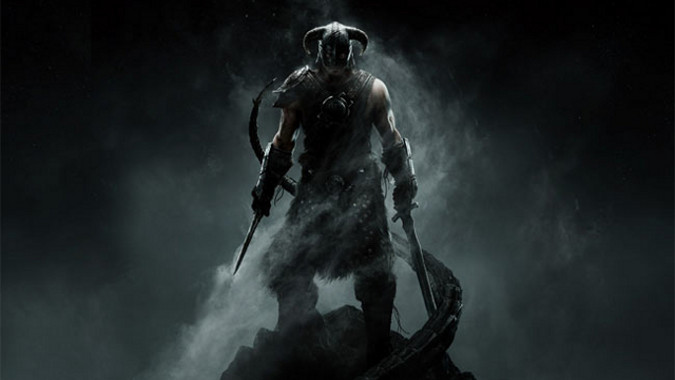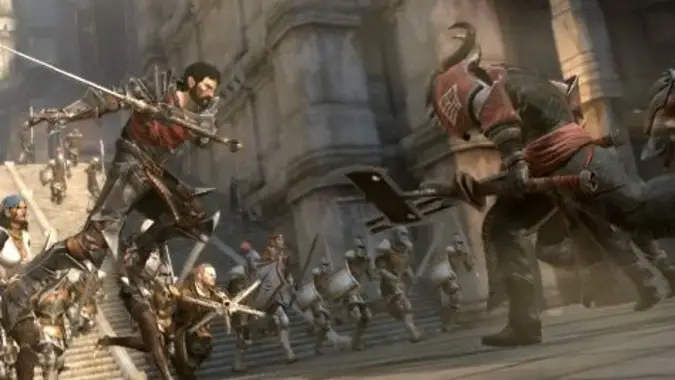The Limitations of CRPGs: Narrative

I was first exposed to the idea of an interactive story RPG game with the Gold Box games from SSI.
Pool of Radiance was the first one I ever played, and I enjoyed it a great deal, but I quickly became aware of a significant difference between role playing games on the computer (hereby abbreviated as CRPG’s) and the table top variety.
I wasn’t really in control of what I said or did when playing on the computer.
Oh, sure, I decided on my actions, but a basic limitation of the computer game (that has never gone away) is that the computer can’t do the things a live game master can. To illustrate the difference, I’ll tell a story from a pen and paper campaign I was in around the same time.

My cousin and I were in a game that a friend of ours was running after school. We weren’t great at it or anything, but we were having fun and it kept us out of trouble. Well, unless you buy what Jack Chick is selling. At any rate, we found ourselves chasing a cult of undead-raising necromancers north into a disturbing forest where, as the DM took great pains to inform us, nothing living could survive.
The trees oozed pitch, the ground bubbled forth with tar and noxious fumes, the very air was seething and could catch fire at any moment. It was a dead, rotting, decaying and fulsomely toxic place infested with the walking dead. He said this at least twice. Then he asked us what we were going to do as we approached the borders of this cursed wood.
“I tracked them going in?” I said. My character was a ranger, skilled with bow and able to follow others.
I was informed that yes, unambiguously, they had gone into the dead forest. I turned to my cousin and gave him the follow my lead smile that I’d used on many terrible occasions. Then I turned to the DM.
“I start shooting flaming arrows into the trees.”
To my friend’s credit, despite this derailing hours of planned encounters, he went along with this complete deviation from his plans and let me burn down the entire dark, decayed wood that nothing could possibly live in.
This is the limitation of all CRPG’s in a nutshell. They can’t adapt to you. Now, they’ve certainly gotten better at providing more options over the years. Games like Planescape: Torment or the Mass Effect series do a lot to preserve the illusion of choice and let the consequences of your previous actions carry forth. And open world games like Skyrim do a great deal towards letting you explore and experience the game world on your own terms.
But the games are always going to be limited by being on a computer. There’s only so much room, only so much one can do to avoid the strictures of a predetermined outcome. The game simply doesn’t have the space or flexibility to let you try everything. And that’s not just in the case of the encounters — in terms of dialogue, there’s only so much the game can store, including the dialogue you say.

As we move further and further into cinematic scale and scope, with fully rendered and recorded characters (and often ones we design from the ground up, at least visually) there’s only so many lines one can record. The actors can’t be expected to sit down and record every thing you have ever wanted to say. So when Vivienne was rude to my Inquisitor, or Ulfric Stormcloak started giving me his spiel, there’s no way the game can handle every possible response you could make. Sometimes it tries — you can punch Solas, for example — but it simply isn’t possible for a computer game to anticipate the full range of potential bad ideas a player can come up with.
This doesn’t make them bad. I’ve had hours of fun playing games like Fallout or Jade Empire or Arcanum. I just recognize that the CRPG is a very different animal from pen and paper RPG’s, less a ‘anything can happen’ space and more a movie that you experience and control in terms of the narrative. Neither is superior, per se — I’d argue that one of the reasons for Planescape:Torment’s popularity to this day, or the continued love people bear the Baldur’s Gate series, or the reason people still talk about Ultima 7 is rooted in this kind of narrative.
While P&P gaming provides you with a very social and convivial atmosphere, it’s often not a very singular one — you don’t get to be the hero, at best you get to be one of them. CRPG’s have birthed some of the most popular characters in gaming, some of whom join your party, and their dialogue and storylines would be much harder to convey if you were one of five or more people all exploring and being completely free to say and do whatever to whoever. One of my pen and paper campaigns ended abruptly when one of the players decided to attack a King just because the concept of monarchism suddenly offended him.
Please consider supporting our Patreon!
Join the Discussion
Blizzard Watch is a safe space for all readers. By leaving comments on this site you agree to follow our commenting and community guidelines.
 @MatthewWRossi
@MatthewWRossi



